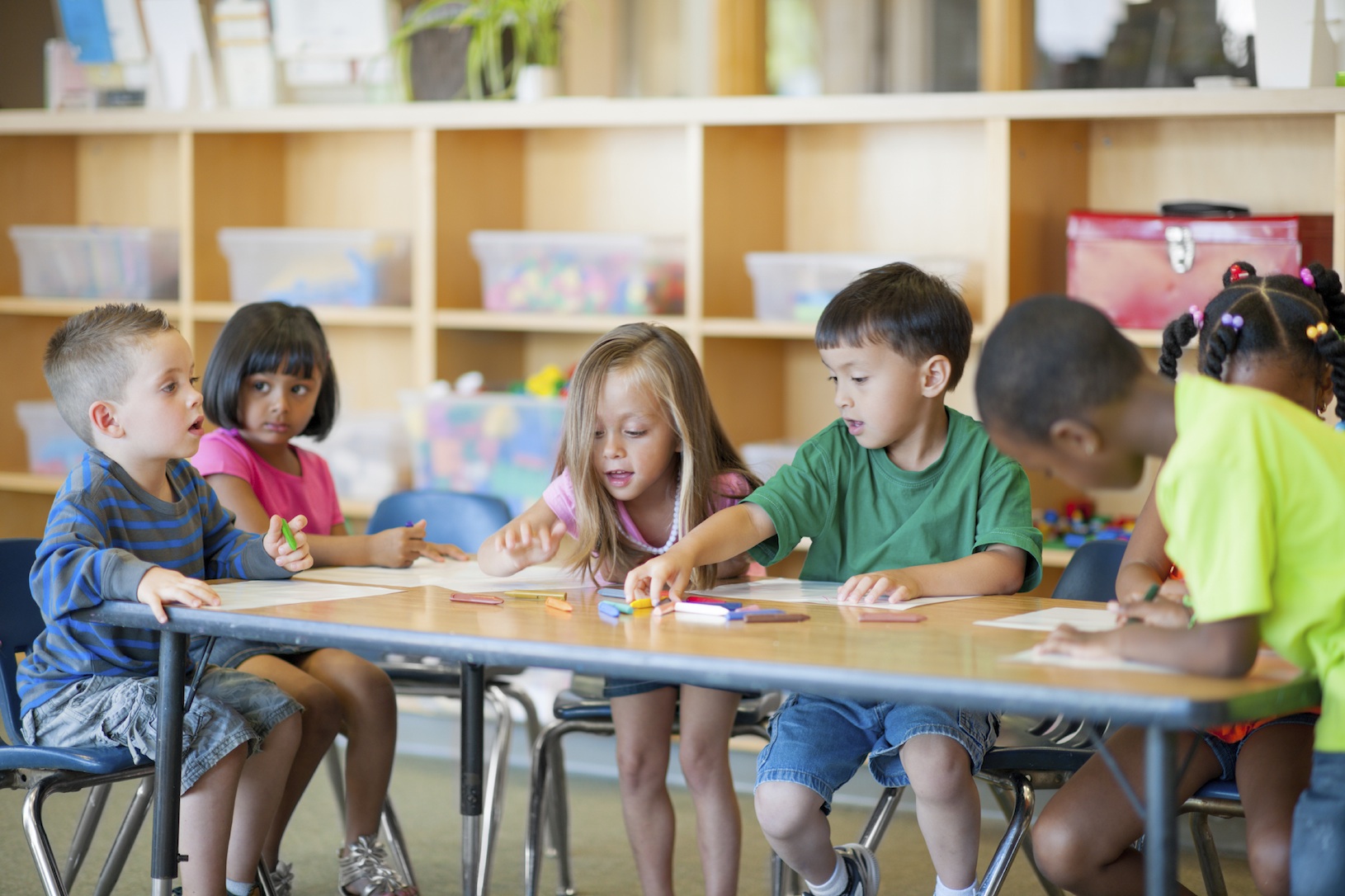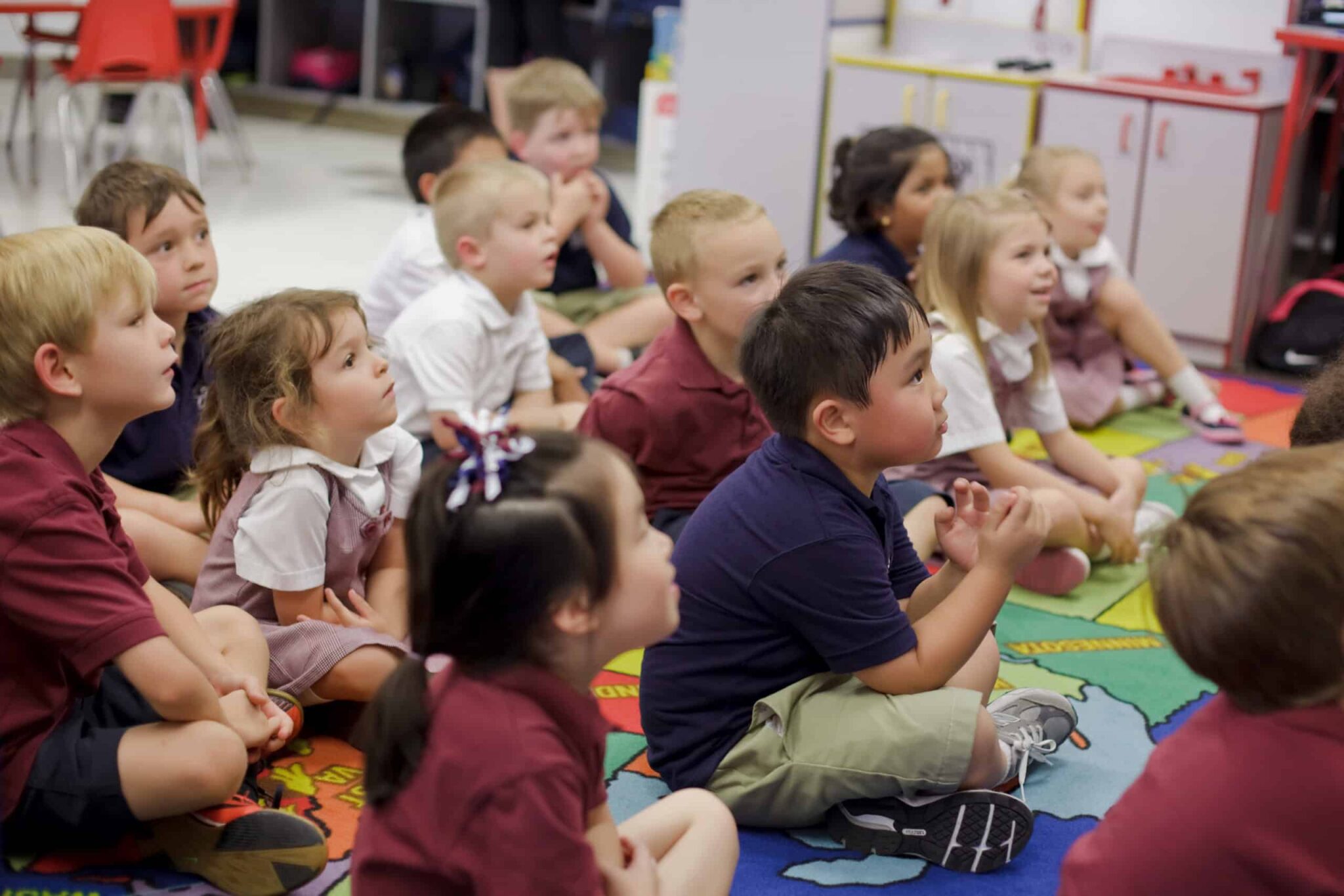Outdoor learning adventures that expand education at Private Grade School Peoria
All About Grade Institution: Crucial Truths and Enriching Experiences for Youthful Learners
Quality school plays a crucial function in shaping young learners' futures. It encompasses vital scholastic topics and supports social abilities with structured interactions. Furthermore, extracurricular activities provide opportunities for imagination and synergy. Adult participation even more improves this foundation, sustaining children in their scholastic trips. As these components intertwine, they develop a thorough educational experience. Nevertheless, what certain approaches can teachers and parents employ to maximize this growth?

Comprehending the Elementary School Educational Program
As pupils commence their elementary school journey, they experience a curriculum made to develop fundamental abilities and understanding across different topics. This curriculum normally includes core areas such as maths, language arts, scientific research, and social research studies. Each subject is structured to cultivate crucial reasoning, creative thinking, and problem-solving capabilities, crucial for future academic success.
Language arts concentrate on reading, writing, and communication abilities, cultivating students' capacity to reveal themselves plainly. Mathematics presents fundamental concepts, including addition, subtraction, and later, multiplication and department, preparing for much more intricate problem-solving. Science motivates query and exploration, igniting inquisitiveness regarding the natural globe, while social studies infuses an understanding of area and multiculturalism.
Along with core subjects, the educational program frequently consists of arts and athletics, giving a versatile instructional experience that promotes both intellectual and physical development. As a result, elementary school functions as an important platform for lifelong discovering.

The Framework of Grade School Education And Learning
While grade institution education and learning differs by area and establishment, it generally follows an organized structure that advertises progressive learning. Commonly, elementary school incorporates a variety of qualities, commonly from kindergarten via 6th or 5th grade, depending upon the academic system. Each grade degree represents particular developing turning points, with curricula developed to build on anticipation.
Classes are typically arranged into core subjects, including maths, language arts, science, and social research studies, making certain that pupils receive a versatile education. Direction commonly integrates straight mentor with hands-on tasks, cultivating engagement and important thinking.
Evaluation techniques vary however generally consist of quizzes, tests, and jobs to examine pupil understanding. In addition, educators usually work together to develop interdisciplinary units, enhancing the learning experience. Overall, the structure of quality institution education and learning intends to grow fundamental skills, prepare pupils for future academic challenges, and advertise a love for discovering that expands past the class.
Social Skills Development in Early Learners
Elementary school education not only concentrates on academic skills but also plays a substantial function in the advancement of social abilities among very early students. Throughout these formative years, kids take part in numerous activities that motivate communication, collaboration, and interaction with peers. Group tasks and cooperative discovering settings supply possibilities for kids to exercise sharing, working out, and fixing disputes.
Moreover, structured play cultivates vital abilities like empathy and understanding, as kids find out to respond and acknowledge to the feelings of others. Through led social interactions, instructors assist students develop vital listening and conversational skills. As youngsters browse relationships and team dynamics, they obtain self-confidence in their social abilities.
The Duty of After-school Activities
Extracurricular activities play a substantial duty in enhancing the educational experience of elementary school trainees by supplying avenues for individual development past the classroom. These tasks permit trainees to discover passions and talents, cultivating creative thinking and self-expression. Involvement in sports, music, art, and clubs cultivates team effort, leadership abilities, and a feeling of belonging.
Furthermore, involving in such tasks promotes physical wellness and health, urging pupils to maintain an energetic way of life. Kindergarten. Extracurricular programs additionally function as a system for pupils to develop relationships and develop social skills, which are vital for their overall development
As trainees browse their interests outside of academics, they gain beneficial experiences that add to their self-esteem and resilience. Ultimately, these tasks play an essential role in shaping all-around individuals, preparing them for future obstacles both in and out of the class.
Sustaining Discovering With Adult Participation
Parental participation significantly enhances the instructional trip of elementary school pupils, as it fosters an encouraging atmosphere that strengthens discovering. Involved parents add to their youngsters's scholastic success by participating additional reading in institution occasions, aiding with research, and maintaining open interaction with teachers. Private School. This participation not just increases trainees' inspiration but likewise grows a feeling of belonging and self-worth
Research indicates that youngsters whose parents are actively entailed have a tendency to have higher qualities, better participation, and boosted habits in college. Furthermore, parental involvement encourages the growth of important life skills, such as time management and obligation.
Schools can promote this participation by Website holding workshops, giving sources, and encouraging routine feedback. By creating collaborations in between instructors and parents, grade colleges can ensure a thorough technique to pupil advancement. Inevitably, adult involvement serves as a foundation for fostering a positive instructional experience, profiting both trainees and the school neighborhood overall.
Often Asked Questions
What Are the Regular Elementary School Hours for Trainees?
Regular grade college hours for trainees normally vary from 8:00 AM to 3:00 PM, differing by district. Many schools include a lunch break and recess, making certain pupils have time to charge throughout the day.
Exactly How Do Grade Schools Address Diverse Knowing Needs?
Quality institutions resolve diverse discovering needs through separated direction, tailored lesson plans, and assistance services, ensuring all students receive appropriate sources. Educators team up with experts to develop inclusive settings that foster private growth and engagement.
What Is the Duty of Modern Technology in Quality School Education?
Technology in elementary school education and learning improves finding out via interactive tools, individualized learning experiences, and accessibility to huge resources. It cultivates collaboration among educators and trainees, preparing kids for a technology-driven future while sustaining diverse instructional needs.
Exactly How Can Parents Aid With Research Successfully?
Parents can assist with homework effectively by producing an organized atmosphere, motivating independence, supplying sources, and providing assistance without directly providing solutions. Interaction with educators additionally boosts understanding of expectations and advertises scholastic success.
What Prevail Difficulties Dealt With by Elementary School Trainees?
Common obstacles dealt with by grade school students consist of problem with time management, comprehending complex concepts, maintaining emphasis throughout lessons, steering social dynamics, and balancing academic obligations with after-school activities, every one of which can influence their total efficiency.
As students start their grade school trip, they encounter a curriculum designed to build fundamental skills and knowledge across different topics. Normally, quality college includes a range of grades, typically from preschool through 6th or 5th grade, depending on the educational system. Extracurricular activities play a significant function in boosting the instructional my link experience of grade school trainees by supplying methods for personal growth past the class. Adult participation significantly enhances the instructional journey of quality school pupils, as it cultivates an encouraging environment that reinforces discovering. By producing partnerships between educators and parents, grade institutions can guarantee a detailed strategy to pupil development.